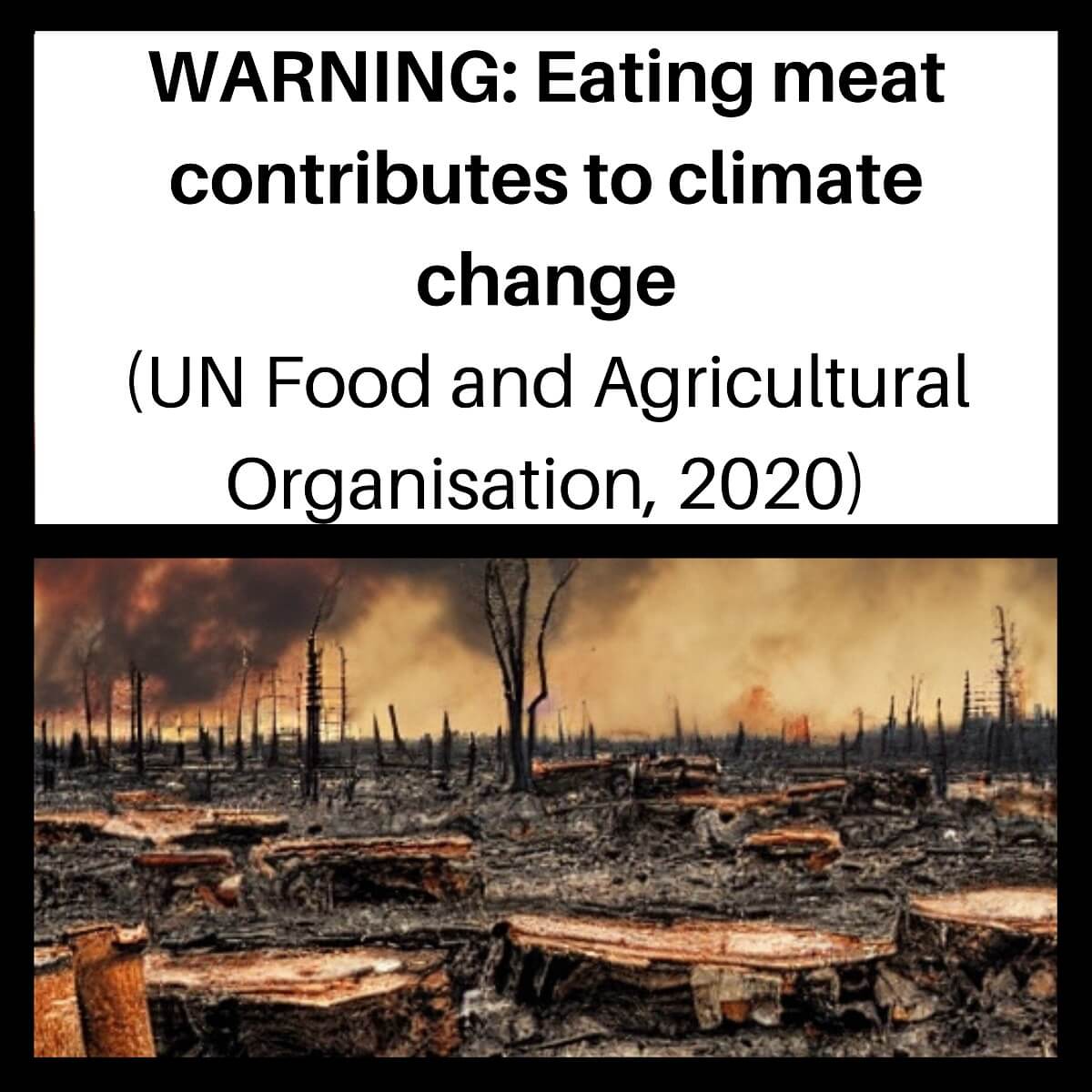DURHAM, United Kingdom — Graphic warning labels on meat products, similar to those on cigarette packages, could reduce meat consumption by 10 percent, a new study suggests. Scientists in the United Kingdom believe that such labeling could enhance public health and lower that country’s carbon footprint.
Researchers from Durham University discovered that labels warning consumers about meat production’s negative impact on climate change were the most effective and deemed the most credible. Additionally, warnings about health risks and the potential increase in pandemics also contributed to reduced meat consumption. The study found that these labels led to a seven to 10-percent decrease in the selection of meat dishes.
A recent survey indicates that nearly three-quarters (72%) of the U.K. population identify as meat eaters. The independent Climate Change Committee, an advisory body to the U.K. government, recommends reducing meat and dairy consumption by 20 percent by 2030.
In the study, 1,001 meat-eating adults were divided into four groups. Each group was shown images of hot meals typically found in a restaurant, labeled with either a health warning, climate warning, pandemic warning, or no label at all. Each warning label included a graphic image and accompanying text.
For example, the climate warning label featured an image of a deforested area with factory smoke in the background, alongside the text – “WARNING: Eating meat contributes to climate change (UN Food and Agricultural Organization, 2020).”

“Reaching net zero is a priority for the nation and the planet,” says Jack Hughes, a doctoral student from the University’s Department of Psychology, in a media release. “As warning labels have already been shown to reduce smoking as well as drinking of sugary drinks and alcohol, using a warning label on meat-containing products could help us achieve this if introduced as national policy.”
Participants were asked to make 20 separate meal choices while researchers gauged their reactions to the labels, measuring how anxiety-inducing and believable they found them. They also assessed the meal’s appeal and whether participants would purchase it again. Additionally, participants indicated their level of support for implementing these labels as national policy.
The meal options presented include a meat pasta bake, a fish pasta bake, a vegetarian pasta bake, and a vegan pasta bake.
“We already know that eating a lot of meat, especially red and processed meat, is bad for your health and that it contributes to deaths from pollution and climate change. Adding warning labels to meat products could be one way to reduce these risks to health and the environment,” says Dr. Milica Vasiljevic, the paper’s senior author.
The study is published in the journal Appetite.
You might also be interested in:
- Read before you smoke! Canada to start printing health warnings on individual cigarettes
- Is Red Meat Bad For You? 7 Reasons That Juicy Steak Or Burger Could Be Harmful To Your Health
- Cybersecurity labels are coming to smart devices — Will you pay more for peace of mind?
South West News Service writer Jim Leffman contributed to this report.


Of course not.
It would be another useless expensive label applied by an agency trying to justify its existence while making things worse.
If you want a label on something put it on an EV that states the vehicle has less range than stated. It will have almost no resale value in 10 years as well. Finally it will be much more difficult to fuel and require extensive planning g simply to charge it, in the vast majority of owners.
Good initiative, but It is much better to charge USER PAY for ecological footprint. Warnings help, but most consumers behave cost aware. Governments should guide. Human co-dependence on nature is well established.
Humanity is in this position because of population pressure coupled with stimulated consumption exceeds the holding capacity of Earth. What was perfectly practical before is corrosive now.
Meat Farming is very wasteful of land and water – It is not just empathy, climate and health… civil laws must replace law of the jungle values. Stop treating consumers as kings in this, it is a question of humanity’s survival and charge for anti speciesism ethics.